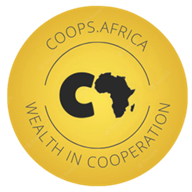Why South Africa Needs an Apex Cooperative Body

An apex body is like a “national umbrella” for all cooperatives. It brings together co-ops from all over the country and speaks for them with one united voice. Right now, many South African co-ops operate in isolation. They face the same problems over and over—like lack of training, poor access to funding, and difficulty getting noticed by government or big business. An apex body exists to solve that.
1. Stronger Voice and Representation
Imagine 10,000 small co-ops all trying to get government’s attention separately. Most will be ignored. But if they form an apex, government listens because that one body represents thousands of members. The Co-operatives Act allows for such a national body—made up of provincial or sector-based secondary co-ops—that becomes the movement’s official representative at national and even international level.
For example, when government is making policy about small business funding, an apex can be in the room arguing for co-op-friendly rules.
2. Coordinated Support and Efficiency
Without a central body, co-ops often repeat the same mistakes. An apex can collect best practices and share them with everyone. If one co-op figures out how to run a poultry business profitably, the apex can help others copy that success rather than starting from scratch.
It can also organise bulk buying for members—saving money—because it can negotiate big deals suppliers wouldn’t offer to one small co-op.
3. One-Stop Funding and Training Hub
The law says an apex can create a guarantee or solidarity fund. This is a shared pot of money that helps co-ops qualify for loans or survive in emergencies—like a stokvel, but on a national scale. If a rural farming co-op’s irrigation pump breaks, the fund could help them replace it quickly so they don’t lose a whole season’s crops.
It can also run training programmes in bookkeeping, governance, or marketing—things most failed co-ops say they wish they’d known from the start.
4. Advocacy and Campaigns
An apex can run national awareness campaigns about co-ops—getting them on TV, radio, and in the news. This makes it easier for members to recruit new customers, attract investors, or persuade government to buy from co-ops.
For instance, if government promises to spend a portion of its procurement budget on co-ops, an apex can track whether that’s actually happening and push for more.
5. Linking to the World
The Act also allows an apex to work with international partners. This means South African co-ops can connect to global cooperative networks, share ideas, and even trade products across borders. If a co-op in Limpopo grows organic tea, the apex might help them find buyers in Kenya or Europe through these international links.
Why It Matters
Without an apex, each co-op is like a small boat in a storm—on its own, struggling to steer. With an apex, they’re part of a fleet, with a bigger ship leading the way and protecting them.
It gives co-ops:
-
A seat at important decision-making tables.
-
Access to pooled resources and emergency support.
-
Training and skills that keep businesses alive longer.
-
National and global visibility.
The law already makes provision for a national apex body, but its real power comes when co-ops themselves unite behind it, use it actively, and hold it accountable. When done right, an apex doesn’t just help co-ops survive—it helps them thrive, grow jobs, and transform communities across South Africa.
- Market Reports
- Economic
- Social and Development
- Communication, Marketing & Success Stories
- Regulation
- Other
- SADC
- African Union



